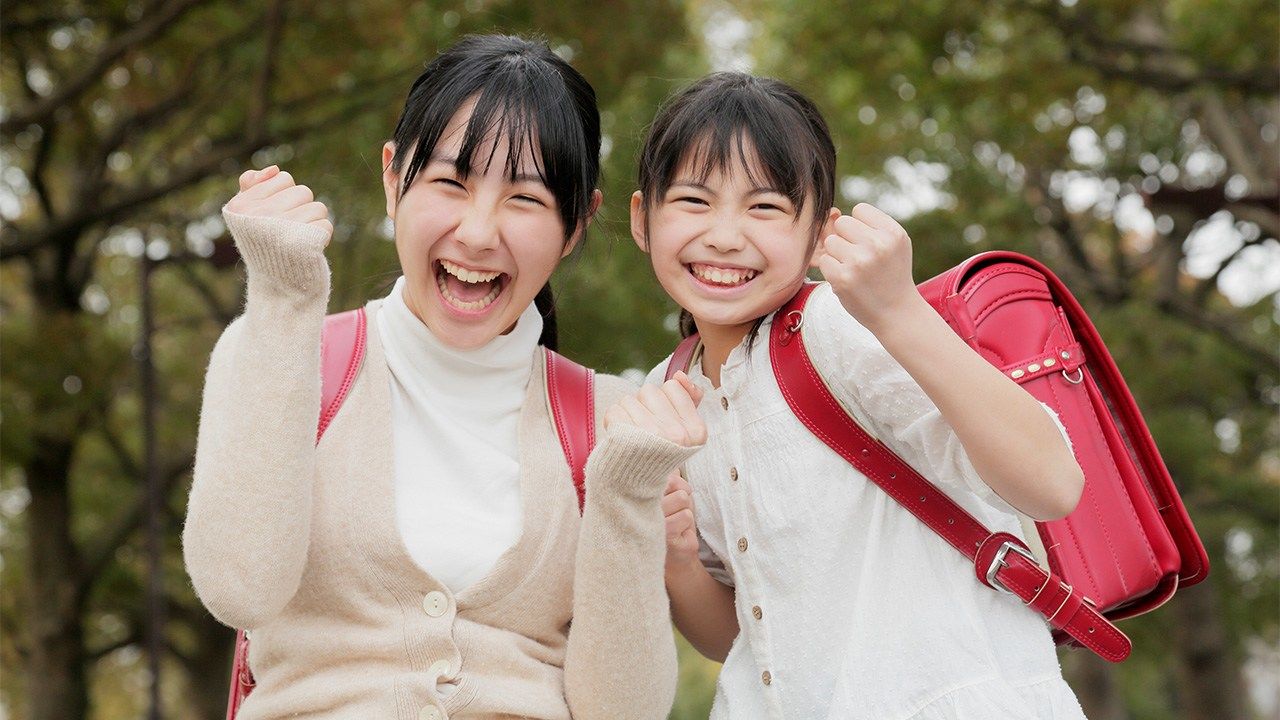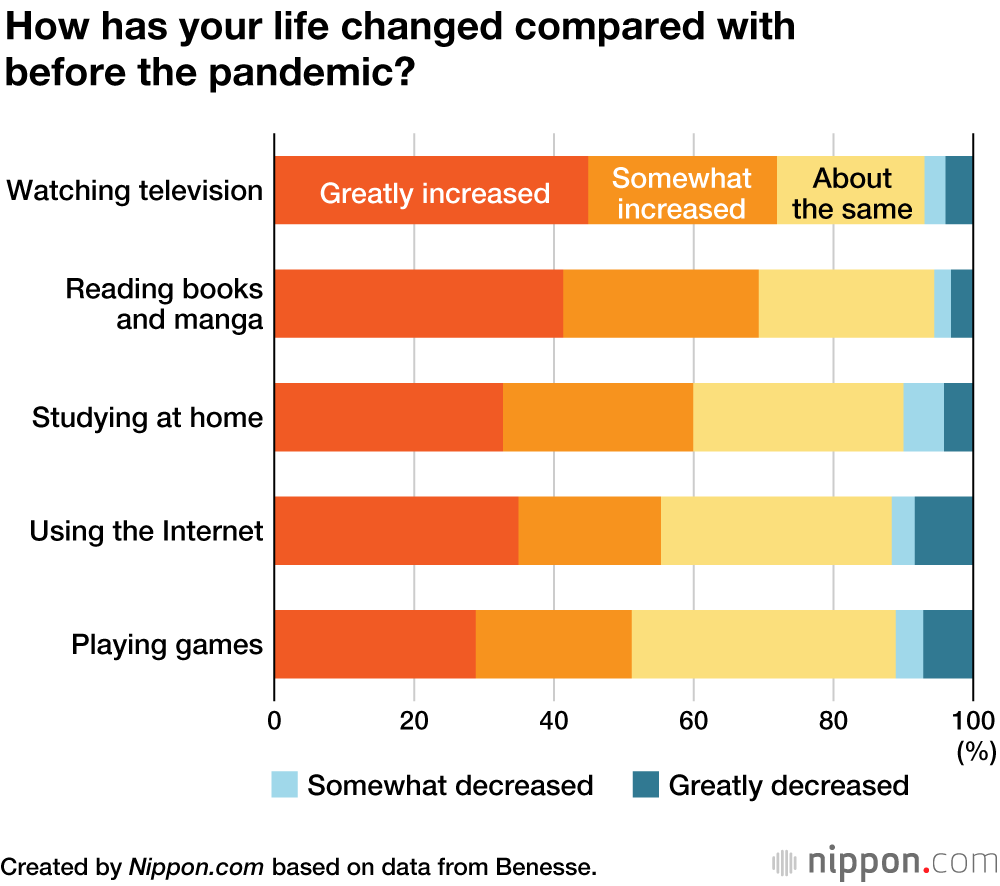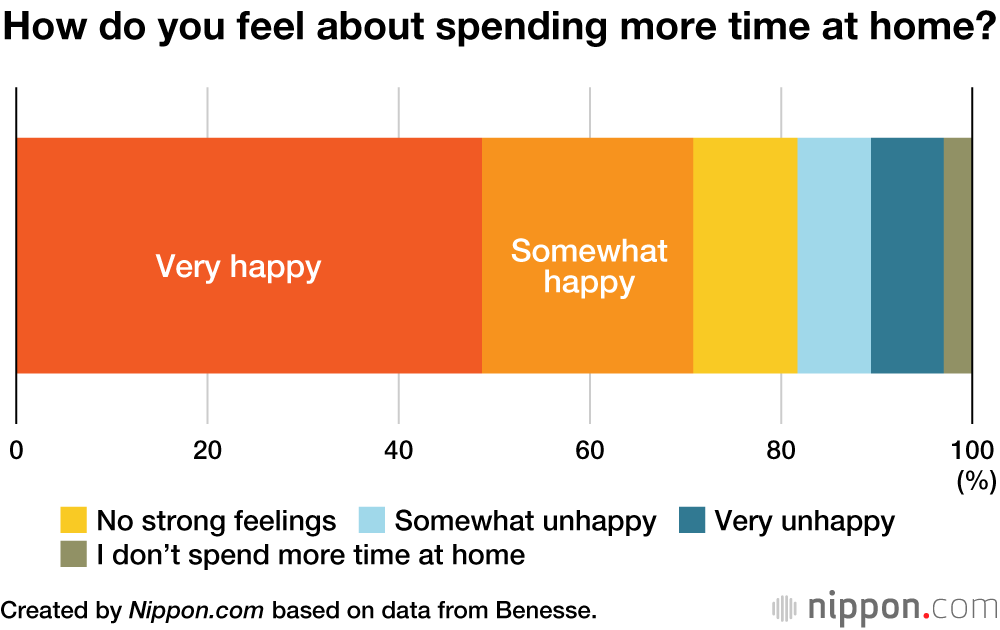
Laughter and Happiness: Elementary School Kanji of the Year Choices Look on the Bright Side of 2020
Society Family Education- English
- 日本語
- 简体字
- 繁體字
- Français
- Español
- العربية
- Русский
Ahead of Japan’s main Kanji of the Year announcement in mid-December, education company Benesse asked elementary students taking its distance courses what character they would choose to sum up 2020. The year has brought its share of difficulties and challenges for children, including school closures, requests to stay indoors, and cancellations of annual events. However, students showed a surprisingly positive outlook by selecting 笑 (shō/warau), meaning “laugh” or “smile,” as the top kanji.
Among the reasons children cited for choosing 笑 were “laughing a lot with friends and family,” with one respondent stating that “despite the coronavirus, I always tried my best and kept a smile on my face.” Second in the ranking was 幸 (kō/saiwai/shiawase), meaning “happiness.” Reasons mentioned for choosing the kanji included being happy to meet friends and spend time with family despite the pandemic and feeling happy to be able to go to school. In third place was 新 (shin/atarashii), meaning “new,” Responses included taking on new challenges and making new discoveries and experiencing new ways of having fun in a new environment.
There were also entries like 悲 (hi/kanashii) or “sadness” and 苦 (ku/kurushii) or “suffering” that expressed the difficulties children experienced themselves or saw in others. The appearance of 鬼 (ki/oni), meaning “ghost” or “demon,” in tenth place was due to the explosive popularity of the manga and anime Demon Slayer: Kimetsu no Yaiba (鬼滅の刃 in Japanese).
Benesse based its ranking on answers from 7,661 children from the third to sixth grade.
Elementary School Students’ Kanji of 2020
| Meaning | Votes | |
|---|---|---|
| 笑 (shō/warau) | Laugh; smile | 284 |
| 幸 (kō/saiwai/shiawase) | Happiness; fortune | 250 |
| 新 (shin/atarashii) | New | 178 |
| 嬉 (ki/ureshii) | Happiness | 165 |
| 悲 (hi/kanashii) | Sadness | 164 |
| 友 (yū/tomo) | Friend | 161 |
| 苦 (ku/kurushii) | Suffering | 130 |
| 恋 (ren/koi) | Love | 123 |
| 心 (shin/kokoro) | Heart; spirit | 117 |
| 鬼 (ki/oni) | Ghost; demon | 97 |
Created by Nippon.com based on data from Benesse.
When asked how their lives had changed compared with before the pandemic, around 70% of the children said they spent more time watching television or reading books and manga, while some 60% stated they spent more time studying at home. The fact that around 70% said they were very happy or somewhat happy about spending more time at home reflects the adaptable nature of children.
(Translated from Japanese. Banner photo © Pixta.)

